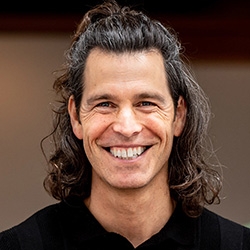

Search Results: ally
-
- Inscrease compassion for yourself through understanding why your capacity may lag so far behind your commitment and what you can do to bridge the gap
- Higher Compassion for your children as you understand better what life is like from within their own experience rather than from the outside looking in
- Surge in energy that you can put into new conversations with them designed to make agreements that are based on the truth of where you all are rather than on any "should"
-
If you answer yes to at least one of the questions below, then this course may be key to building the relationship you want with your children:
- Do you know in your bones that you want to build a relationship in which both your needs and those of your children are fully included?
- Are you tired of seeing yourself time and again using methods to get your children to "cooperate" that you don't actually subscribe to?
- Do you struggle to imagine how to find enough hours in the day to collaborate for real with your children?
- Do you brace for any conversation with extended family and community who criticize you for being too soft with your children?
- Do you often feel all alone and wonder if you are actually on the right path?
-
- Understand the dynamics of power struggles
- Explore practical strategies for navigating power imbalances
- Discover ways you can share power in various relationships
- Explore how NVC supports a move away from domination, into shared power
-
Explore what blocks us from speaking truth and how honesty builds trust and growth.
-
One of the premises in NVC is that behind all behavior and expressions are Universal Human Needs as the deeper motivators. And one of the key distinctions in NVC is that between Needs and Strategies. Try Alan Rafael Seid's exercise called "Peeling the Layers of the Onion, " a process for uncovering these needs — the deeper motivations — that underlie words and behaviors we may find disturbing or puzzling.
-
How do we talk to ourselves and with others about polarizing topics in a way that's supportive? Seek to understand and be understood rather than press for agreement. Bring mindfulness into the conversation. Slow down and use structure to support everyone. Release knowing the solutions, answers or outcomes. Keep focus on shared universal needs. From this place we can say what's in our hearts and minds, and trust the process.
-
It’s essential to give ourselves time to grapple with the complex feelings surrounding the brutality of state-sanctioned racism and violence. But if all we do is reflect and attend to our emotions we fail to show up, where and when it counts. So let's not perpetuate the violence by standing idly. Instead, here's ten things you can do to move into concrete action to address the continued, untenable, and horrific violence of racism. A list of resources is included.
-
The regeneration movement employs practices for healing our planet from damage, and boosting Earth sustainability. Environmental and social degradation is deeply connected -- as it comes from the same extractive, exploitive mindset of economic and related systems. Connecting with universal consciousness and needs underlying conflicts, we connect with commonality of all planetary life. This helps tap new abilities for working together. This can contain power to regenerate and heal ourselves and Earth.
-
Trainer tip: When we focus on needs further possibilities are more likely to open up. When we focus on a particular strategy, our world can feel scarce and conflicts can arise. Resolution comes when we value everyone’s needs and seek mutually satisfying solutions. We can ask for support towards this outcome.
-
In these exercises, you'll transform your urge to rebel with punishment or reward. Punishing can include withholding love or other necessities, attacking verbally with insults or name calling (directly or with others), giving a "dirty look," or attacking physically. With these exercises you'll allow space for your urge. You'll also explore needs, benefits, consequences, and lternatives.
-
John and Stephanie combine mediating conflict, parenting and study of brain science to this ground-breaking course recording on how to funnel your anger and your child’s anger toward mutual caring and peace.
-
Enjoy listening in as Arnina assists participants in fine tuning what they wish for their futures, and what practices they intend to embrace as the course winds down. She also offers strategies for what they can do if they forget their intended practice, and revisits the importance of untangling Needs from Core Belief.
-
Grieving reminds us of the preciousness of life, it helps us integrate loss, and it opens us to deeper compassion, inspiration, and joy. We need to create space in our lives to grieve fully.
-
Exploring how to share NVC in a school environment where others may not yet understand its value.
-
Trainer Tip: Be aware of opportunities today to choose empathizing over arguing with someone who is angry, and notice how it affects your ability to resolve the situation. Read on for more.
-
- Discover how to figure out what you really want, then how to ask for it
- Learn how to make requests with ease and how to guess the requests of others
- Practice strategies for turning ‘demand energy’ into ‘request energy’
- Be able to stand firmly for your needs and assertively ask for what you want
-
NVC trainers discuss intrinsic needs in addiction and its alignment with 12-step programs.
-
When we ask something of a person and threaten negative repercussions if she doesn’t comply, we're making a demand. Demands limit the possible responses and reduce joyful participation. Instead, look to find mutually satisfying resolutions. And look for ways to change your demand into a request. Read on for more.
-
The season is changing. What have you done to nurture yourself these past several months? It has been summer in my part of the world and moving into fall.
-
Exploring why “to be” verbs like heard or valued are seen as strategies, not needs, in NVC.

Quick Links
Subscription Preferences
Stay In Touch!
Looking for ways to keep up with NVC Academy news, get special offers, free resources, or words of inspiration? Here are five ways to stay engaged:




















